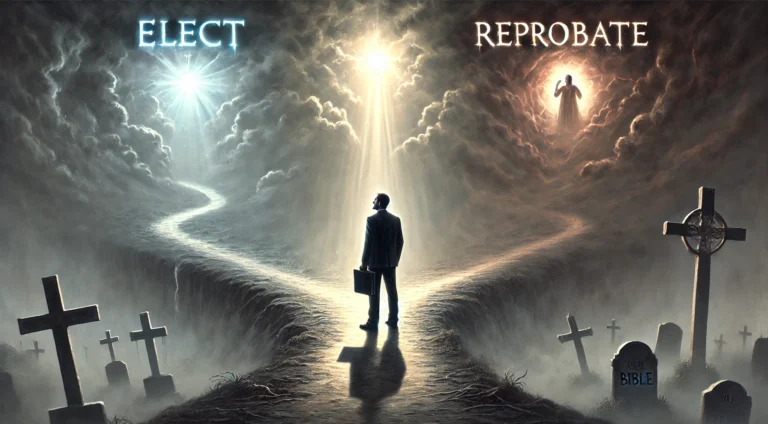One thing that strikes me the most when engaging with Calvinists is their unwavering confidence in their own election, despite their belief that God’s will is sort of hidden and unconditional. They assert that salvation is solely based on God’s decree, independent of human actions or merit. Yet, when confronted with cases of apostasy (individuals who once professed faith but later fall away), Calvinists often claim that such individuals were never truly saved to begin with.
This raises a fundamental question: on what basis do they claim the Father has elected them, the Son has died for them, and the Spirit has sealed them? If their system allows for the possibility that someone who once believed themselves to be saved may ultimately be deceived, how can they have any real assurance of salvation?
John Calvin himself acknowledges this tension. He writes, “Experience shows that the reprobate are sometimes affected in a way similar to the elect, that even in their own judgment there is no difference between them” (Institutes of the Christian Religion, 3.2.11). If even the reprobate can experience what seems to be genuine faith, how can any believer be certain that his faith is not of the same fleeting kind?
The Calvinist interpretation of passages such as Hebrews 6:4-6 suggests that those who fall away only had an illusion of grace, not its reality.
But if self-deception is possible even among those who once felt entirely convinced of their salvation, then the question remains: how can any Calvinist be sure that they are not among those who will later be revealed as reprobates?
Calvin attempts to offer reassurance by appealing to the inward testimony of the Holy Spirit, stating, “The Spirit is the earnest of our inheritance, sealing the salvation of the elect with certainty” (3.1.3). However, if some who truly believed and were certain of their salvation can still fall away, then the claim to certainty becomes illusory and subjective, as no apostate ever denied their former confidence while they were believers. The very doctrine of unconditional election undermines the confidence of the believer because it severs assurance from any tangible evidence.
Unlike traditions that ground assurance in perseverance, obedience, or faithfulness, Calvinism holds that the elect will exhibit the fruits of genuine faith.
However, it provides no infallible means by which an individual can distinguish between true election and self-deception.
This dilemma is further compounded by the fact that Calvinists reject any conditional basis for salvation because they insist that it depends entirely on God’s hidden decree. Calvin states, “We call predestination God’s eternal decree, by which he determined what he willed to become of each man. For all are not created in equal condition; rather, eternal life is foreordained for some, eternal damnation for others” (Institutes of the Christian Religion, 3.21.5).
If God’s will is ultimately unknowable and His decrees for salvation are beyond human comprehension, how can any individual be certain they belong to the elect? Even the most devout Calvinist must admit that their faith could be a deception, a temporary impression rather than a lasting reality.
In the end, the Calvinist doctrine of election creates a paradox: it calls for absolute assurance while simultaneously denying the believer any reliable means of obtaining it. If one can never truly know whether their faith is genuine, then any claim to assurance is, at best, an act of presumption rather than a certainty grounded in the promises of God. Thus, the Calvinist confidence in election seems to rest not on assurance, but on the very uncertainty they claim to reject.




